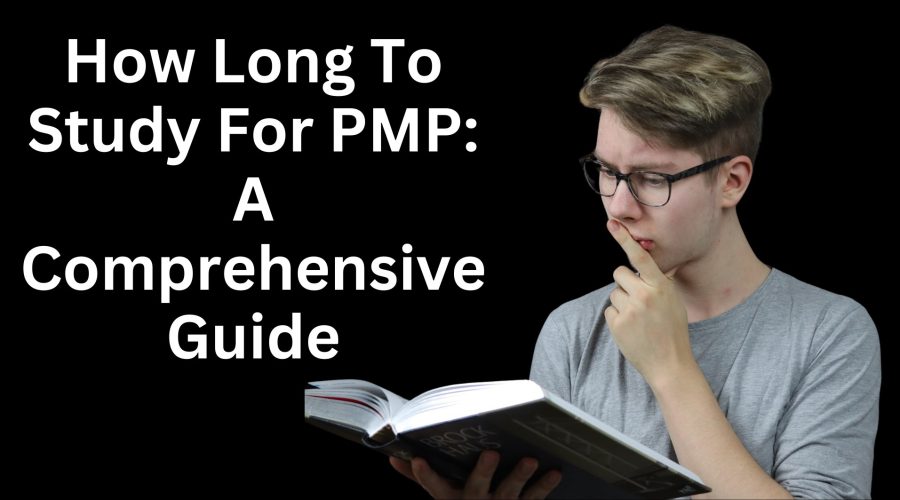Preparing for the Project Management Professional (PMP) certification exam is a significant undertaking that requires strategic planning and dedication. With most candidates dedicating between 2 to 4 months to study, understanding how to effectively allocate your time is crucial. This guide will help you navigate the complexities of the PMP exam preparation, ensuring you’re well-equipped to tackle the challenges ahead.
The PMP exam is heavily based on the PMBOK Guide, a comprehensive yet daunting resource. Many candidates find themselves overwhelmed by its extensive content, often dedicating 1-2 hours daily to study.
For those with substantial project management experience, a more intensive 6-8 week study plan might suffice. However, grasping the key concepts and allowing time for practice exams is essential for success.
Whether you’re balancing full-time work or seeking a more immersive study approach, this guide will provide the insights you need to optimize your preparation strategy.
Develop a PMP Exam Study Strategy
A structured study strategy greatly enhances your chances of passing the PMP exam. Set specific goals and organize your study methods and resources effectively.
How Long to Study for the PMP Exam
Allocate sufficient time for your PMP exam preparation. Most candidates study for 2-3 months, dedicating 1-2 hours daily. If you’re experienced, a 6-8 week plan may work.
Factors Influencing Study Duration
- Your Background: If you have extensive project management experience or have exposure to PMI’s methodologies, you might require less study time.
- Study Materials: The primary reference is the PMBOK (Project Management Body of Knowledge) Guide. However, supplementary materials can deepen understanding.
- Learning Style: Some people are fast learners, while others prefer to take their time. Recognizing your learning pace is crucial.
A Suggested Study Plan
- Basic Groundwork (1-2 Weeks):
-
- Familiarize yourself with the PMI website, PMP exam content, and prerequisites.
- Procure the PMBOK Guide and other recommended materials.
- Intensive Reading (4-8 Weeks):
- Go through the PMBOK Guide thoroughly, at least once.
- Review other supplementary resources.
- Start practicing with question banks and mock tests.
- Deep Dives & Mock Tests (4-6 Weeks):
- Dive deep into complex topics or areas where you lack confidence.
- Take numerous full-length mock tests. This aids in identifying weak spots and getting accustomed to the exam’s pace.
- Final Revision (1-2 Weeks):
- Revisit challenging topics.
- Practice more mock tests.
- Skim through the PMBOK Guide for a final refresher.
Tips for Effective Preparation
- Set a Study Schedule: Consistency is key. Dedicate specific hours each day.
- Join a Study Group: Interacting with peers can offer diverse perspectives and clarify doubts.
- Engage in Active Learning: Instead of passively reading, teach concepts to someone else or engage in discussions.
- Use Flashcards: Simplify complex topics and review them regularly.
- Rest Before the Exam: A well-rested mind performs better than a fatigued one.
Get Familiar with the PMBOK Guide
The PMBOK Guide is central to the PMP exam. Plan study sessions to cover each section thoroughly. For instance, read 60-90 minutes on Mondays and Wednesdays.
Get Familiar with Other Study Resources
Complement the PMBOK Guide with other resources. Use online question banks, study groups, and forums to understand different perspectives and scenarios.
Leverage Your 35 Contact Hours for Project Management Training Wisely
Use the 35 contact hours requirement for project management training to delve into specific areas of interest. Choose courses that focus on exam-relevant topics and align with knowledge gaps.
Take Practice Exams
Regularly take practice exams to assess your progress. On Fridays, take a mock exam, review your answers on Saturdays, and adjust your study plan. Practice helps identify weak areas and improve test-taking skills.
Strategies for Memorizing and Understanding
Successfully preparing for the PMP exam requires a well-rounded approach that combines strategic planning with effective study techniques. It’s crucial to tailor your study plan to fit your schedule and learning style, ensuring you cover all necessary material comprehensively.
Incorporating diverse resources like online question banks and study groups can enrich your understanding and provide varied insights. Regular practice exams are invaluable tools for tracking your progress and honing your test-taking abilities.
By committing to a structured study regimen and focusing on both memorization and comprehension, you’ll be well-equipped to tackle the PMP exam with confidence.
Conclusion
Preparing for the PMP exam requires a strategic approach, combining structured study with ample practice. With an understanding that the pass rates suggest a significant challenge, candidates should commit to thorough preparation over several months.
By focusing on both theory and practical application through consistent testing, you can significantly enhance your likelihood of success in obtaining the PMP certification.
FAQs
Develop a structured study plan by setting clear goals and organizing your study methods and resources. Allocate dedicated sessions for each PMBOK Guide section, identify your knowledge gaps, and focus on exam-relevant topics. Regular practice exams will aid progress tracking and skill enhancement. Practice exams are vital as they help candidates assess their progress, identify weak areas, and improve test-taking skills. Regular practice familiarizes them with the exam format and timing, thereby boosting confidence and performance during the actual exam. To meet the 35 contact hours requirement, enroll in training programs focused on project management practices relevant to the PMP exam. Choose courses that address your knowledge gaps and cover essential topics, ensuring you're well-prepared for the exam. How should I structure my PMP study plan?
What is the importance of practice exams in PMP preparation?
How can I meet the 35 contact hours requirement for PMP?

